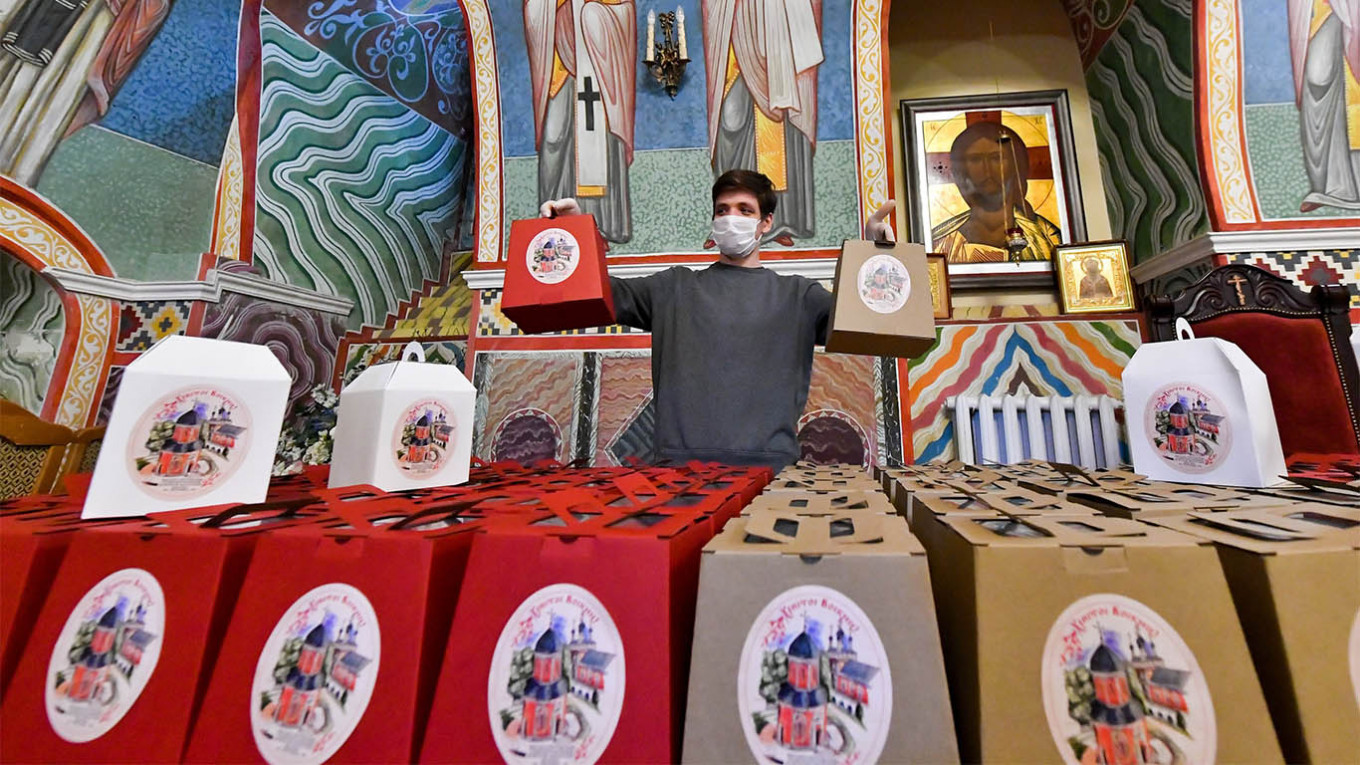
Millions of Russians will celebrate Orthodox Easter this Sunday amid the coronavirus pandemic that has infected more than 32,000 people and shut down all large gatherings nationwide.
Despite strict lockdowns in most regions, the Russian Orthodox Church has largely resisted government recommendations to close places of worship to the public throughout the Holy Week and on Easter, the most important holiday of the year for its 164 million worshippers. It has, however, advised the faithful to stay home.
Thousands of worshippers across the country celebrated Orthodox Palm Sunday on April 12, drawing criticism for the lax social distancing observed during some services.
Here’s an overview of how the country will celebrate Easter during the pandemic:
Church services
Both the Russian government and Russian Orthodox Church leadership have advised worshippers to stay inside over Easter, with many churches planning to broadcast services online so people can pray at home.
In Moscow, the epicenter of the coronavirus outbreak in Russia, churches have been ordered by the city’s health officials and Church leadership to hold services with only priests, clergy members and volunteers present.
Outside the capital, Orthodox cathedrals in 43 out of Russia’s 85 regions still plan to keep their doors open to the public for Easter services, the RBC news website reported. Alexander Verkhovsky, director of the Moscow-based Sova Center for Information and Analysis, told the news website that regional governors will likely allow these services to take place to avoid a hit to their approval ratings.
Easter feasting
Several bakeries in Moscow and St. Petersburg are making the traditional Russian Easter cake — a sweet iced bread containing dried fruits called a kulich — available to purchase through delivery to help residents comply with the cities’ stay-at-home orders.
In St. Petersburg, the Montana Steak House restaurant says it will even deliver Easter cakes that have been pre-blessed by an Orthodox priest.
Russians will be able to take part in their ever-popular Easter egg tradition despite the coronavirus, with grocery stores remaining open during lockdown. In Russia, it’s common to dye eggs red by boiling them with onion skins for Easter and exchange them with friends and family.
Family gatherings
But other traditions, such as the large family gatherings that typically take place on Easter, will mostly be called off this year as Russians stay isolated at home.
Parks are out of bounds as all but essential trips on foot are forbidden, and restaurants and cafes are closed.
Anyone wanting to enter or leave Moscow to visit loved ones by car or public transport will have to get a digital pass under new rules that came into force on Wednesday.






